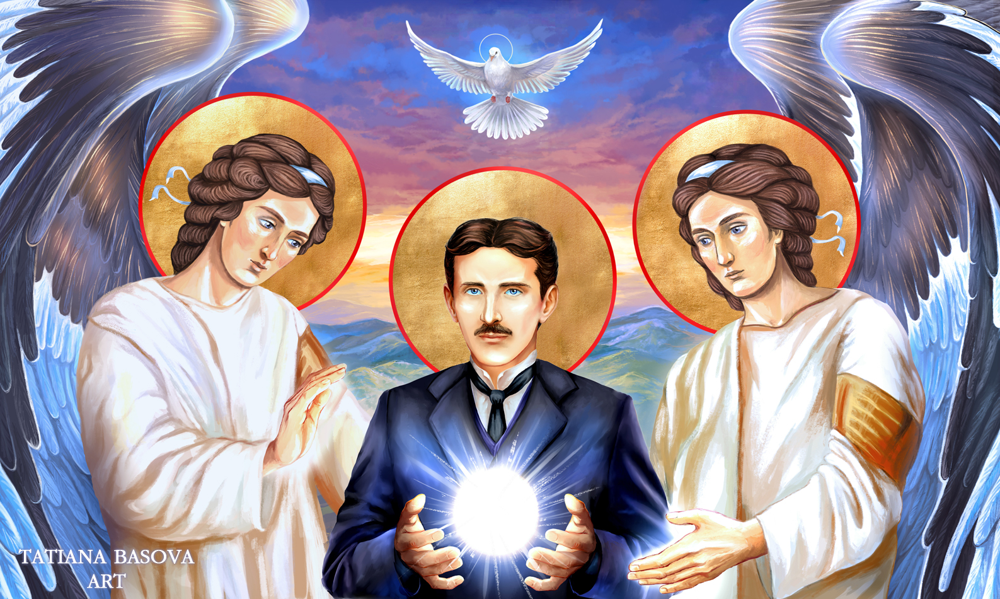Nikola Tesla was born into a family deeply rooted in the Orthodox Christian faith. His father, Milutin Tesla, was a priest in the Serbian Orthodox Church, while his mother, Georgina (Đuka), came from a family with a strong religious heritage. Yet, although raised in the spirit of Christian tradition, Tesla did not become a priest—he chose the path of science instead. That does not mean he rejected religion—his view of spirituality was complex, personal, and far ahead of its time.
Tesla and the Orthodox Tradition: Respect Without Dogma
Tesla retained a deep respect for the Orthodox tradition. His New York apartment contained religious icons, and friends noted that he observed the family Slava—Saint Nicholas. However, he distanced himself from rigid dogma.
In an interview with The Sun (1898), he said:
“My mother taught me to seek truth in the Holy Scripture. But science has shown me that many religious doctrines are misunderstood.”
Tesla on God: Cosmic Consciousness, Not Religious Dogmatism
To Tesla, God was not an old man in the sky, but a universal force of nature—the mind of the cosmos. His definition of the divine was aligned with modern interpretations of quantum physics and natural philosophy.
In a conversation with John Smith (1930), he stated:
“God is not something you can picture as an old man on a cloud. God is law, energy, light—a universal consciousness that permeates everything.”
In his autobiography My Inventions (1919), he added:
“Every man must believe in something greater than himself. My religion is respect for the infinite intelligence behind all physical laws.”
Criticism of Institutional Religion: Science as the Path to Truth
Tesla was deeply spiritual, yet sharply critical of organized religions, which he viewed as outdated. His faith was a belief in understanding—not in ritual.
In a letter to George Sylvester Viereck (1930), he wrote:
“Religions are the past—science is the future. But that does not mean spirituality doesn’t exist. True religion is not found in rituals, but in understanding the universe.”
Was Tesla an Atheist?
Tesla was not an atheist. He did not deny the existence of a higher order—he simply refused to accept it through dogma. He believed that science and spirituality are not enemies, but complementary paths.
In an interview with The World Today (1926), he remarked:
“Atheists merely replace one dogmatism with another. I do not deny the existence of a higher principle—I simply seek to understand it through physics, not through religious speculation.”
Tesla spoke of a “cosmic consciousness” and “an energy that connects all things”—concepts close to Eastern philosophies and Hermetic thought, though he never formally joined any such school.
Conclusion: Tesla—A Scientist with a Spiritual Dimension
Nikola Tesla was both a rational scientist and a spiritual seeker. His spirituality was not based on dogma, but on an intuitive grasp of the universal laws of nature. He respected tradition, yet searched for a truth that transcended the boundaries of religion and science.
As he once said:
“The day science begins to study non-physical phenomena, it will make more progress in one decade than in all the previous centuries.”
In an era where faith and science are often in conflict, Tesla remains a beacon of synthesis—a man who believed that the mystery of life lies in the union of energy, consciousness, and knowledge.


Leave a Reply